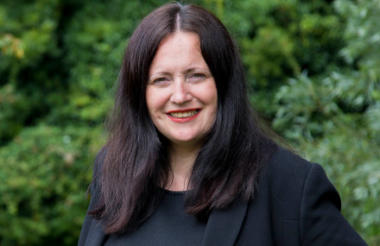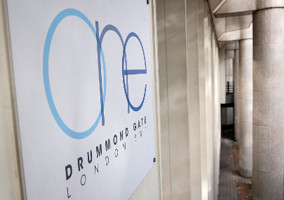Some campaigning has become “self-serving” and charities need to look at their own practices to make sure that their activity really “gives voice” to their beneficiaries.
Vicky McDermott, chief executive of the Papworth Trust and chair of the Care and Support Alliance, was speaking at an NPC event about the Lobbying Act last Friday.
She suggested that some charity campaigning serves the ideology of charity staff, rather than really helping beneficiaries.
She urged charities to reflect on the fact that “the political leaning of many of our organisations’ policy teams tends to be to the left of centre” with some having one “pet Tory” to “give some balance”.
This has led to some campaigning being “relatively self-serving,” she said.
“I can see why some Conservatives might take the view that we need to have legislation in place,” she said
She added that there is a “real need for us as a sector to look at our own practices” to “make sure that what we’re doing supports and gives voice to those that do not have a voice”.
McDermott said the sector has a “huge responsibility to get that right”.
‘We did do things differently’
McDermott also said the Lobbying Act had affected her organisations’ activity during the election.
“We didn’t do some of the things we wanted to do,” she revealed as it was about striking a “balance” between speaking out and managing risk.
This included turning down media opportunities because the legal advice the charity had been given was to wait to comment until all the manifestos had been published.
As an alliance of 92 charities she said “we have got to work out where the risk appetite of each is” and that means that the risk appetite for the alliance is “somewhere near” the lower end.
She also said it was sometimes “unhelpful” when there is commentary from within the sector “saying ‘just be braver’” as charities are balancing different priorities.
‘The Lobbying Act makes us unwelcome in the political space’
Jessica Metheringham, parliamentary engagement officer at the Quakers in Britain, said the problem is that charities like hers “don’t operate in the way the act assumes”.
The Quakers registered in 2015 and 2017. In 2015 it reported a spend of £79,000 to the Electoral Commission, but Meterhingham said trustees were “determined not to change how we operate” and were prepared to breach the limit.
The Quakers is made up of 72 registered charities under one church making it a “relatively complicated structure” which “does not operate in the way that the Lobbying Act assumes”.
She also said that the act does not help transparency because the information it asks for is not helpful. The information filed with the Electoral Commission shows that 95 per cent of the Quakers’ spend is on staff costs.
“That isn’t helpful to anybody,” she said.
She added that complying was burdensome and that they had a “rather large spreadsheet” to comply.
The act has the effect of making charities feel as though they are “not welcome in the political space and that politics is just for political parties,” she said. “We in the Quakers are not willing to accept that - we think that civil society belongs in politics.”
Naima Siddiqui, director of finance and regulatory affairs at Friends of the Earth, also spoke about the compliance burden of registering with the Electoral Commission.
FoE was fined earlier this year over activity in the 2015 election because it “didn’t put a form in on time”.
She said as soon as the 2017 election was called the charity had to review all its activity.
Other stifling factors
Antonia Bance, head of campaigns and communications at the TUC, who has previously led campaigning work at Shelter, among other charities, said she was surprised by the lack of charity involvement during the election.
She gave the example of a campaign around schools funding cuts which gained traction around the country “but that wasn’t run by a charity, that was run by a trade union”.
Bance said she didn’t think it was just the Lobbying Act which had led charities to be quiet.
“If you get government funding everyone says that it shouldn’t affect what you feel able to speak out on,” she said, but that in reality “that is a really hard line to tread”.
Duncan Shrubsole, director of policy, partnerships and campaigns at the Lloyds Bank Foundation for England and Wales, said that the “real barriers for smaller organisations are around commissioning, poor campaigning capacity and confidence”.
He said the lack of participation in the EU referendum was a “particular failure” for the sector and also called for a rethink on how charities campaign.
“We need to get back to the bigger, broader issues,” he said.
Simon Steeden, charity partner at the law firm BWB, said the “restrictive” guidance issued by the Charity Commission ahead of the EU referendum was part of the problem.
The Commission amended its guidance about campaigning during the referendum after criticism from the sector.
David Nussbaum, chief executive of The Elders, said the Commission’s broader stance was a discouraging factor because it gives trustees the impression that campaigning and taking people to court are “risky” activities, but doesn’t balance this by saying that sometimes not to do so could be a “dereliction of duties by trustees”.
“I’ve not heard William Shawcross say that,” he said. “Where is the voice of the Charity Commission saying to trustees ‘why haven’t you thought about campaigning, why are you not taking the government to court?’”
A Charity Commission spokeswoman said: “Our CC9 guidance makes clear that charities have a valuable role to play in campaigning and encouraging debate about issues that affect their beneficiaries, as highlighted publicly by attendees at the meeting. Whilst it is not for the Commission as an independent regulator to tell charities how to run their organisations, we publish a range of guidance on a number of issues to support trustees in making considered and informed decisions, which includes highlighting potential risks.
"We will shortly be publishing a case report looking at some of the common issues that arose in our campaigning-related casework in the run up to the 2017 General Election.”
Trustees need support
Panellists called for more support for trustees.
McDermott said: “This isn’t for the most part about the people in this room” but about “how do we support trustees to make bolder decisions?”
Bance added that charities need to consider if trustee boards are “diverse” enough and if they represented those who used their charity.
Related articles











